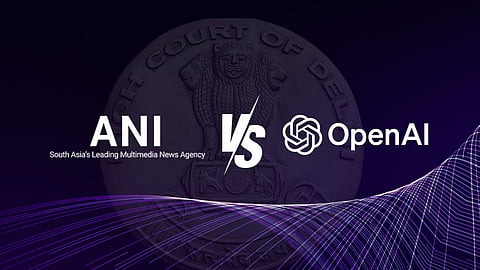The legal battle between Asian News International (ANI) and OpenAI has sparked intense debate over copyright infringement, AI training practices, and data ownership. ANI has accused OpenAI of using its exclusive news content without authorization to train ChatGPT, raising critical questions about intellectual property rights in the age of artificial intelligence.
Key Allegations Against OpenAI
- ANI claims that OpenAI stored and used its copyrighted news articles for AI training without obtaining a license.
- The news agency argues that ChatGPT generates responses that closely resemble ANI’s original content, potentially violating copyright laws.
- ANI has also pointed to instances where ChatGPT falsely attributed interviews and reports to ANI, damaging its credibility.
Legal Framework and Copyright Implications
- The case is being heard in the Delhi High Court, with ANI citing provisions from the Copyright Act of 1957 to support its claims.
- Section 13 of the act protects original literary works, while Section 14 grants copyright holders exclusive rights over reproduction and adaptation.
- OpenAI has contested the allegations, arguing that ANI’s content is publicly accessible and that AI-generated responses do not constitute direct copyright infringement.
OpenAI’s Defense and Industry Impact
- OpenAI maintains that its AI model relies on publicly available data and that ANI could restrict access using the Robots.txt protocol.
- The company asserts that AI-generated content is transformative and does not replicate ANI’s articles verbatim.
- The outcome of this case could set a precedent for AI companies operating in India, influencing future regulations on data usage and copyright enforcement.
Future Outlook and Global Relevance
- The ANI vs. OpenAI dispute is among the first major copyright cases involving generative AI in India.
- Legal experts anticipate that the ruling will shape AI development, licensing agreements, and content protection strategies.
- As AI technology evolves, governments worldwide may need to refine copyright laws to address emerging challenges in digital content creation.
Source: J.P. Associates, Law Asia.

